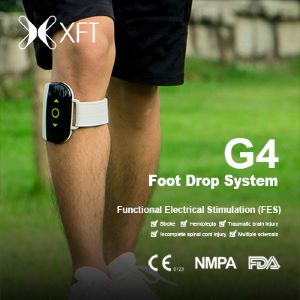Poster
Multidisciplinary Rehabilitation Approach for Optimizing Prosthetic Gait Training in a COVID-19 Survivor with Exacerbated COPD: A Case Report
Tuesday, October 31, 2023
12:20 PM - 12:26 PM
Location: Station 3

Cody Richards
Student
Sam Houston State University College of Osteopathic Medicine
Spring, Texas, United States
Presenting Author(s)
Research Objectives: To highlight the importance of addressing comorbidities and medical limitations to optimize rehabilitation outcomes.
Design: A case report with a multidisciplinary rehabilitation approach was employed to address the patient's medical conditions and facilitate prosthetic gait training.
Setting: This case report was conducted at a rehabilitation center within Veterans Affairs.
Participants: A 67-year-old male veteran with a history of left transtibial amputation due to peripheral vascular disease. The patient was diagnosed with COVID-19 one month before initiating prosthetic gait training at a Veterans Affairs. Residual shortness of breath, fatigue, and deconditioning incurred post COVID greatly decreased the patient's ability to engage in rehabilitative prosthetic gait training.
Interventions: The patient received a personalized rehab program including COPD-focused pulmonary rehab, cardiovascular conditioning, neuromuscular reeducation, and prosthetic gait training. Interventions were adjusted for reduced lung function and physical deconditioning.
Main Outcome Measures: Outcome measures included pulmonary function tests, exercise tolerance assessments, functional gait analysis, and quality of life assessments.
Results: During rehabilitation, the patient showed significant progress. Pulmonary function tests indicated enhanced lung function, attributed to tailored pulmonary rehab considering limitations. Cardiovascular endurance improved, countering deconditioning from recent COVID-19 and immobility. Increased physical activity highlighted potential cardiovascular recovery. Prosthetic gait analysis revealed improved adaptability despite deconditioning and respiratory challenges. This underscores holistic prosthetic gait training's value. Quality of life assessments showed elevated well-being and psychological status, validating the comprehensive strategy and enhancing confidence.
Conclusions: A personalized, multidisciplinary approach is vital for optimizing rehab outcomes in complex medical cases. Our successful rehab of a COVID-19 survivor with exacerbated COPD emphasizes tailored interventions like pulmonary rehab, cardiovascular conditioning, neuromuscular reeducation, and prosthetic gait training. This underscores the symbiotic relationship between physical and psychological rehab, highlighting comprehensive care's importance. Positive outcomes demonstrate potential for intricate medical cases to make meaningful progress, underscoring patient-centered strategies' significance in achieving holistic well-being.
Author(s) Disclosures: No conflicts of interest or financial disclosures.
Design: A case report with a multidisciplinary rehabilitation approach was employed to address the patient's medical conditions and facilitate prosthetic gait training.
Setting: This case report was conducted at a rehabilitation center within Veterans Affairs.
Participants: A 67-year-old male veteran with a history of left transtibial amputation due to peripheral vascular disease. The patient was diagnosed with COVID-19 one month before initiating prosthetic gait training at a Veterans Affairs. Residual shortness of breath, fatigue, and deconditioning incurred post COVID greatly decreased the patient's ability to engage in rehabilitative prosthetic gait training.
Interventions: The patient received a personalized rehab program including COPD-focused pulmonary rehab, cardiovascular conditioning, neuromuscular reeducation, and prosthetic gait training. Interventions were adjusted for reduced lung function and physical deconditioning.
Main Outcome Measures: Outcome measures included pulmonary function tests, exercise tolerance assessments, functional gait analysis, and quality of life assessments.
Results: During rehabilitation, the patient showed significant progress. Pulmonary function tests indicated enhanced lung function, attributed to tailored pulmonary rehab considering limitations. Cardiovascular endurance improved, countering deconditioning from recent COVID-19 and immobility. Increased physical activity highlighted potential cardiovascular recovery. Prosthetic gait analysis revealed improved adaptability despite deconditioning and respiratory challenges. This underscores holistic prosthetic gait training's value. Quality of life assessments showed elevated well-being and psychological status, validating the comprehensive strategy and enhancing confidence.
Conclusions: A personalized, multidisciplinary approach is vital for optimizing rehab outcomes in complex medical cases. Our successful rehab of a COVID-19 survivor with exacerbated COPD emphasizes tailored interventions like pulmonary rehab, cardiovascular conditioning, neuromuscular reeducation, and prosthetic gait training. This underscores the symbiotic relationship between physical and psychological rehab, highlighting comprehensive care's importance. Positive outcomes demonstrate potential for intricate medical cases to make meaningful progress, underscoring patient-centered strategies' significance in achieving holistic well-being.
Author(s) Disclosures: No conflicts of interest or financial disclosures.
Learning Objectives:
- To understand the importance of treating limiting comorbidities before engaging in rehabilitative prosthetic gait training.
- To understand positive progression in prosthetic gait training.
- To understand the limiting effects of COVID induced deficits on rehabilitation.

.jpg)
